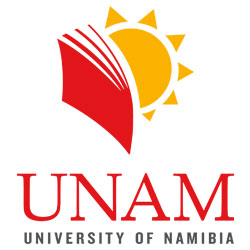In conversation with
Prof. Lazarus Hangula
Vice-Chancellor | University of Namibia

Tags: africa, Education, Higher Education, Namibia, SADC, University
FDI Spotlight: How do you respond to the resistance regarding the collaboration between educational institutions in Namibia and the country’s private sector?
Prof. Lazarus Hangula: It is a complex issue and it is important to consider the history of Namibia’s educational environment, as well as the history of this institution.
UNAM was established less than two years after Namibia’s independence, which meant we had to hit the ground running. We needed human resources, which were scarce, and even the academic culture was limited. We had to set up an academic institution in a country that did not have an academic tradition and no institution to benchmark ourselves against. We were encouraged by solidarity through the Association of Commonwealth Universities, UNESCO, African universities, and bilateral agreements established between the new government and many countries.
The first ten years were years of our establishment, where we were setting up the infrastructure, our curriculum and designing new courses.
We did not want our curriculum to conform to the classical design you find in many universities. We designed programmes that could address the immediate needs of the country and the community. From the beginning, we looked at the faculty, the academic aspects but also the social impact. There was a lot of research, that is where I started to research social science. We looked at socio-economic aspects of the country, and the basis of our survival. We focused on gender training, training staff members in good governance and on introducing new programmes that were not known here. It was a revolution but I think it worked. We tried to help the government with its policies such as the ones on resettlement, policies on land, and more. Later we became a bigger player, through the United Nations and their peacekeeping. We also trained our diplomats and the police. We have played a central role in our society since our establishment.
At one time the university, post-1998, we were required to assist a group of parliamentarians. One group went to Asia, another to the Americas, and I went to Europe to help document the discussion for Namibian parliamentarians with other parliamentarians.
We did not just start as an academic institution for the discourse, but to drive theory and to influence the development of our country. The university is frequently asked to do inductions for new parliamentarians. Initially, we had to do the administrative stuff of parliament, for our civil service. Because these are the people who are in post permanently. Politicians come and go. We have built our influence, so we can talk to those people and via this process, we hope to influence our MP’s. Our trips to different parts of the world have also helped the work of the parliament. Parliamentarians who have travelled abroad came back and developed a document to help the government form coherent policy-making. Nowadays because of our involvement in the training of peacekeepers, we now have a School of Military Science and similar institutions. We operate in a country that is sparsely populated. To that end we have to be conscious of where we are based. As we are only in Windhoek, we cannot expect students to come all the way here for their studies and this creates a problem. The government has also requested that we have our campuses spread out. We also tried to design our campuses in such a way that they worked with the natural endowment of the area. In the far east , we have more animals, which is where we have programs on wildlife and conservation and ecotourism. The greenbelt from the Zambezi and west wards is where we have crop science. These are also the areas where we had to intensify programs in education and teacher training because of language proficiency.
How have you seen education change and how do you, future-proof students, how has UNAM risen to the challenge of progressive industries?
Prof. Lazarus Hangula: Because we are a vast country with a small population, it has inspired us as a multi-campus university system to be innovative in the sense that we cannot have teachers based on all campuses in the same discipline. If we had to move teachers across to other campuses that would pose a risk. Long distances create a problem. To solve this, we invested in the communications system, along with the use of interactive multimedia. Thus, we can now accommodate all twelve campuses at the same time. We have professors coming from different countries such as the USA, Germany, Kenya and many others.
We now have a system in place where people can teach from their home country. That is one area where we have really innovated. We are experiencing problems with the bandwidth, etc. but the system is in place. Every student that comes here has to go through a UNAM programme, which focuses on ethics, society and health issues, well as computer literacy.
What are some of the industries the education system will spark into existence, and what is the contribution you want to make to move the country forward?
Prof. Lazarus Hangula: We almost have a university programme now for every sector. We say we are a hidden cabinet, meaning we are the ones providing the requisite human capital for work, management and planning. I’m sure many of the ministers and CEOs you spoke to are alumni of this institution. We are not just backed by knowledge but also by constant research. In this way, we inspire the country to develop. We are also looking into alternative technologies and power systems such as solar energy and wind systems. Incidentally, we were the first organisation in Namibia to harness solar energy. Our engineering campus’s whole system is completely green and self-sufficient. The electricity comes from the solar panels on the roof.
How do you see Internationalisation in terms of R&D, and in attracting international partners for UNAM or all universities across Africa?
Prof. Lazarus Hangula: Namibia is going through a financial crisis which we are forced to handle. Apart from that, we have learnt through the twenty-five years of our existence. We have partnerships with universities in Asia; from China to Japan and in Europe from Germany and the UK. These partner universities help us to bring in funds for infrastructure, equipment and research. We also have a very important programme focussed on malaria with the University of San Francisco in California. Two weeks ago we had the minister of education visiting us from Germany. She came here with a group of Vice Chancellors. The scope is big; the opportunities are there.
What areas does Namibia have in terms of research potential for outside universities looking at Namibia?
Prof. Lazarus Hangula: One area that has potential is sand, which we have a lot of. With which we could produce industrial quantities of glass. In agriculture too, we are running experiment’s in our greenbelts. Namibia has the potential to produce all its food. Another area where we could collaborate with other universities is in animal science. South Africans are very interested in the programme we have set up in medicine and veterinary medicine. We also have a lot of minerals, but at the moment we do not have the expertise to explore those mineral opportunities.
Is there a plan for UNAM to look to Singapore and Dubai to feed the need that Namibia will have in logistics and public/private partnerships?
Prof. Lazarus Hangula: For now, we have no links to Dubai or Singapore. As we are the only institution that teaches agriculture we want to specialise. We do not have much to do with logistics because our colleagues at NUST want to specialise in that area. But we have been dealing with the maritime issues. We have a campus that is specialising in coastal research on aquatics, fisheries, etc. We have been working with Norway and other universities on this. We want to add a component of maritime studies. We have marine engineering taking place in the dry-land in the North, where we have the engineering faculty. At the moment we are the only institution of higher learning connected to the sea. We also want to collaborate with the ministry of fisheries, transport and so on. We have two upcoming projects and it is possible in the short to long term we may have something to do with Singapore and other maritime universities. We have a steering committee made up of the industry, the ministry and the university to examine the feasibility of this.
This period presents a good opportunity for Namibia to take stock and to plan what direction the country is going and what can be implemented better going forward, would you agree, and what future would you see for Namibia?
Prof. Lazarus Hangula: I agree. Because Namibia went through war to gain independence, it was also supported by the international community. We learned from that solidarity. It helped us set up infrastructure, institutions, and systems. What we are going through now is a wake-up call that A) we need to be more innovative and we have to plan and B) that our economy is not integrated. So we need to work together, not just within our country but within our region too. We must communicate and share with each other through our industry, our education and skills and so on. The recession will help us to innovate. Even us as an institution, we are more or less dependent on government and we have already felt the pinch affecting our funding.
What legacy do you hope to create, for UNAM, with its move to broader internationalisation?
Prof. Lazarus Hangula: Our business as a university means we are open to the world. We have students from 44 countries studying here, and this is only the beginning. We get applications from as far away as the Middle East. We see the world from a different perspective because of these students and staff members. If we have Namibian students going to other countries, it will also aid in our internationalisation. Travel is always positive, there are always so many things to learn from travelling. Imparting knowledge and expanding the frontiers of science you learn ethics and other things through the process. We encourage it. We send our students all over and we have our existing partnerships and we are open to more.
